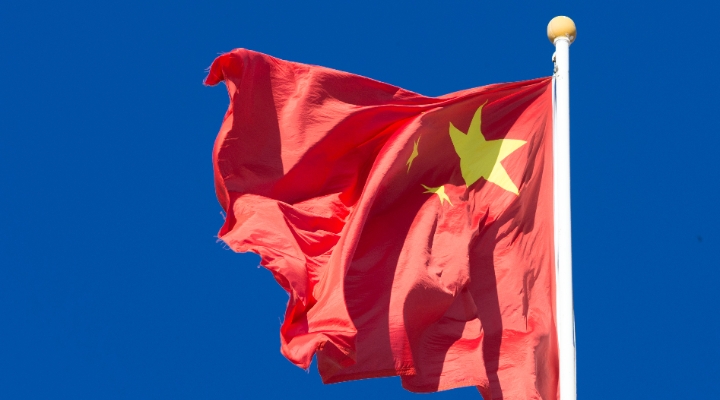
An exclusionary list is one way to incorporate personal values into one’s investment universe. Some ESG-aware investors choose to instead quantify these non-financial risks and discount them in valuation estimates. Kristoffer Inton, equity strategist who focuses on ESG research at Morningstar, says understanding these subtleties can help identify undervalued opportunities for shrewd investors.
“When it comes to negative externalities for “sin” stocks, the costs are often well understood and long known. But we think the risk doesn’t stem from the discovery of new societal costs but rather the imposition of those costs on producers and consumers,” he says.
Where are the unique risks to gauge before investing in each of the sectors? We have picked three types of ‘sin stocks’ and discussed the topic in the context of China.
Alcohol – Environmental Risk Relating to Water Resources
Water itself is cheap but there are other costs emerging for companies that utilize water, including developing technology to improve an alcohol maker’s water efficiency, so as to mitigate risks relating to water resources.
Production of spirits requires significantly more water than beer and wine. This is primarily due to the need to concentrate alcohol through distillation to reach a high alcoholic content, and then to cool it down. In the case of China, distilled alcohol has been a staple at Chinese state banquets and business events, with the prominent brand being Kweichow Moutai (600519).
Inton, citing data from Beverage Industry Environmental Roundtable, says one liter of distilled alcohol could take roughly 25 liters of water on average, which is far higher than the single-digit reading for beer and wine. This adds pressure to the available water resources.
Worse still, the success of Kweichow Moutai, a premium brand of Chinese white liquor, has attracted private investors to start their own distillery businesses in Guizhou, a Chinese province that is suitable to cultivate the sorghum crop. This hype has caused distilleries to crowd into the region and compete for resources, which may stretch the supply of natural water as well as other resources.
Jennifer Song, equity analyst at Morningstar, describes the investment craze, saying: “A small city in Guizhou province, Renhuai city where Kweichow Moutai distillery is situated, is one of the favorite locations for making sauce-style baijiu due to the access to sorghum and water. In the first 7 months of 2021 alone, over 4,000 baijiu producers and sellers were newly registered.” This could push costs higher for this very style of white liquor.
Casinos and Gaming – Corporate Governance and Regulatory Risk
A casino’s gains are ultimately its customers’ losses, which very much manifests negative impacts on society. Problem gambling also creates costs that casinos do not bear. In Asia, Hong Kong and Singapore are two economies where gambling creates the largest losses across the region, according to Inton’s report.
Investors in Macau gaming stocks should not overlook the regulatory risks. Although the sector is highly regulated, issues like money laundering and illicit money outflow persist. The arrest of Macau’s casino junket operator Alvin Chau in November last year was a prelude to an end of the lucrative VIP business that could involve gamblers sensitive to China's economic and credit conditions.
Another risk is that gaming licenses could be granted to new operators and stricter terms implemented for license renewal. Last year, Macau, a special administrative region of China running the country’s only legal casinos, rewrote the licensing rules for casinos.
Inton says: “With the Chinese and Macao governments seeking to shift the special administrative region to an entertainment hub and away from gambling, they’ve encouraged casino operators to focus on non-gaming investments, which have lower returns. Additionally, the duration of the next license renewal cycle will likely be shortened to 10 years, adding more policy flexibility—adding risk of potentially faster implementation of future regulation.”
The government is likely to step up regulatory control over the gaming sector, requiring concessionaires to notify the government on major capital allocation decisions, and maintaining a minimum of MOP 5 billion in share capital. Also, more frequent renewal may be required.
Morningstar thus rates all six gaming concession license holders with a ‘Very High’ fair value uncertainty because of the above risks.
Video Games – Regulatory Risk
Unlike alcohol and gambling, addiction to video games remains a debated topic, which makes strict regulation globally rather unlikely. Inton says: “On one hand, the release of dopamine associated with a pleasurable activity like playing video games and the potential inability to exhibit self-control look like other addictions. On the other hand, there is no consensus—video games are not considered an addiction by the Diagnostic and Statistical Manual of Mental Disorders.”
However, China is a special case. The country has come up ‘gaming curfew’ for youngsters. In 2020, the government brought in rules that limit the time that underage gamers spend on Tencent (00700)’s Honour of Kings and in 2021, the firm voluntarily lowered the hour limit further. The government’s control on video gaming also includes a halt on approvals for new game titles to be released domestically, which only ended recently after nine months. The authority’s intervention remains an overhang for investors in Chinese game developers. Morningstar analysts give a ‘High’ fair value uncertainty rating.












.png)





.jpg)





